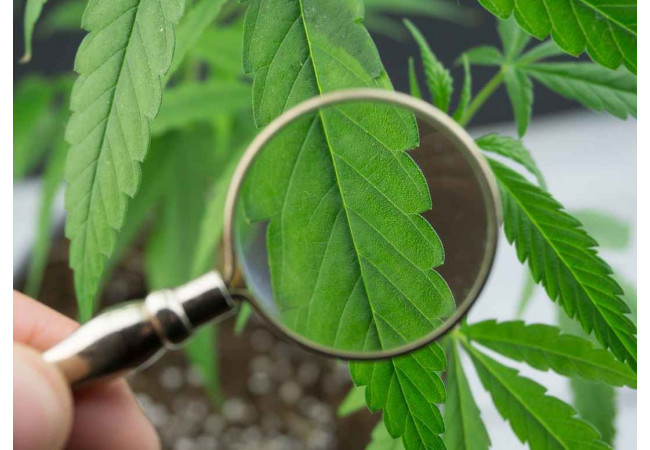
What is tetrahydrocannabinolic acid (THCa)? This is a question asked by many people interested in medical cannabis. While most people are familiar with THC (tetrahydrocannabinol), the main psychoactive component of cannabis, its precursor, tetrahydrocannabinolic acid (THCa), remains less well known. However, research shows that this inactive form of cannabinoid may have significant therapeutic potential. In this article, we'll take a look at what THCa is, how it affects the body, and what medical applications THCa is already finding in therapy.
What is tetrahydrocannabinolic acid?
Tetrahydrocannabinolic acid (THCa) is a compound found in the raw cannabis plant. It is an inactive form of THC. When cannabis is exposed to heat - through smoking, vaporizing, or cooking - THCa is converted to THC in a process called decarboxylation. Unlike THC, THCa has no psychoactive properties, meaning it does not cause euphoria.
How does THCa affect the body?
Although THCa has no psychoactive effects, it can affect the body in other ways. The effects of tetrahydrocannabinolic acid on the body are related to its anti-inflammatory, neuroprotective, and antioxidant properties. Some studies show that THCa can block certain enzymes in the body that contribute to inflammatory reactions and pain.
It has also been found that the effects on the body of THCa may include improving motor function and slowing down degenerative processes, making it promising for the treatment of diseases such as Parkinson's disease and multiple sclerosis. In one animal study, THCa was shown to reduce inflammation, which opens up prospects for the treatment of chronic inflammatory diseases such as arthritis.
In addition, THCa may have a protective effect on the brain, preventing oxidative stress that is associated with neurodegenerative diseases. This makes it an interesting target for further research in the treatment of dementia and other cognitive disorders.
Medical uses of THCa
Research shows that the medical uses of THCa can be quite extensive. Although this compound has not yet received as much attention as THC or CBD, there are several promising areas where THCa can be used to treat various diseases.
1. Anti-inflammatory. THCa can be used to reduce inflammation in the body. This makes it a potential treatment option for diseases associated with chronic inflammation, such as rheumatoid arthritis, fibromyalgia, and inflammatory bowel disease.
2. Neuroprotective. As mentioned earlier, THCa has protective properties for the nervous system, which opens up opportunities for its use in the treatment of neurodegenerative disorders such as Alzheimer's and Parkinson's disease.
3. Antioxidant. THCa acts as an antioxidant, protecting the body's cells from free radical damage. This makes it useful for maintaining overall health and preventing age-related changes in the body.
4. Nausea reliever and appetite stimulant. Some research suggests that THCa can effectively fight nausea and stimulate appetite, which is especially important for patients undergoing chemotherapy or suffering from chronic illnesses associated with weight and appetite loss.
5. Support for epilepsy. While CBD (cannabidiol) is more commonly used to treat epilepsy, THCa can also have anticonvulsant properties and help reduce the frequency of seizures in some patients.
How can THCa be used at home?
Fresh cannabis leaves and inflorescences contain high levels of THCa, and the plant does not need to be heated to produce its therapeutic effects. People interested in using tetrahydrocannabinolic acid can add raw cannabis leaves and flowers to smoothies or salads, getting all of its benefits without the psychoactive effects that come with heating.
Another popular way to consume THCa is through the use of tinctures and oils that are produced from the fresh cannabis plant. These tinctures can be taken orally to achieve an anti-inflammatory effect or to reduce nausea.
The future of THCa research
Despite the growing interest in THCa, research in this area is just beginning. Many scientists believe that this compound has great potential, and future research will be able to fully reveal its therapeutic properties. The medical use of THCa could expand significantly once we better understand how this compound affects the body and what mechanisms underlie its action.
One of the key challenges is the need to standardize THCa extraction and production methods. Currently, most cannabis-based products available on the market are heat-treated to convert THCa to THC. However, with the development of technology, we can expect the emergence of new production methods that will allow us to preserve this compound in its original form.




